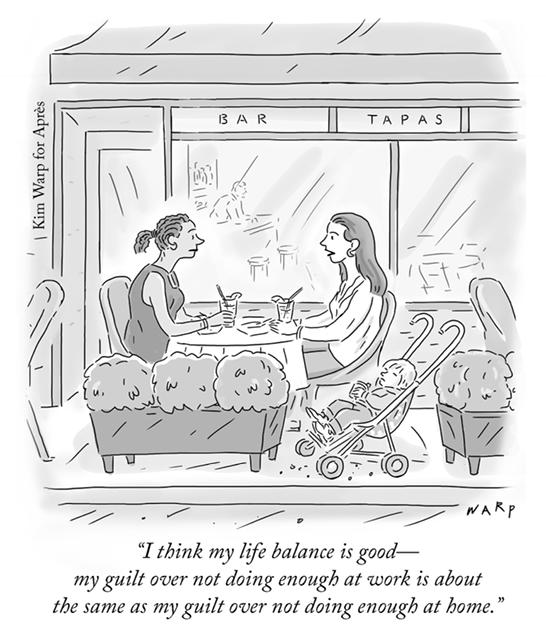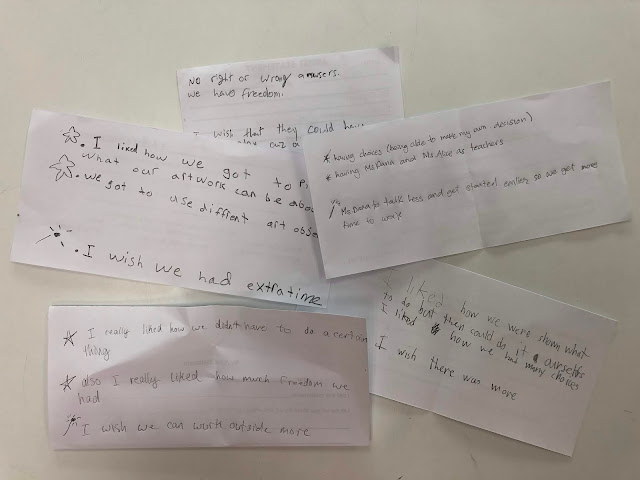How Being "Mediocre" Inspired My Wellness
"I strive to be mediocre," commented a teacher friend of mine in one of the first conversations we had over a year ago. As we sat in the staff lounge at lunch getting to know one another, discussing teaching styles and aspirations, I was surprised (and relieved) by her candor. It doesn't seem like the type of reply that would inspire or leave a lasting impact, but it has guided and helped to enrich my approach to teaching, learning, and living in the past year.
To start off, let's put some context into this comment. "Striving to be mediocre" to her meant that she wasn't the type to come in on the weekends or be at school into the evening hours. She wasn't signing up to be on every committee and you wouldn't be seeing any school related emails from her outside of school hours. It did mean, however, that she was one of the most efficient teachers I've met, using her prep periods to plan, collaborate, and document learning. But school was school, work was work, and she made no qualms that she also had a life outside of being a teacher. This would not be sacrificed it in the name of being labeled "teacher of the year" by others' standards. She was confident that she could be teacher her students needed her to be without having to sacrifice her own wellbeing.
I never thought about being a teacher in this way before I met her. I always felt that I had something to prove and by adding more hours on my computer planning or in my classroom prepping, I might live up to some vision of being the best teacher I could be. I was so wrong for so many years and never thought twice about it.
This teacher is also an amazing educator. Great rapport with her students, super organized and focused, empowers her students to take risks, and has realistic expectations and boundaries in her learning environment. But that's not all there is to her. She is an avid reader, cross-fitter, baker, crochets, and...naps. She allows time for her "teacher self" to take a break, leave it at school, and focus on other aspects that make her a well-rounded (and fun to be around) person. In reality, she is far from "mediocre" in any way, but her perspective of leading a balanced life by allowing herself the time to be herself (outside of being a teacher) was what sparked something in me.
Seeing all of this in the first weeks of school last year, I began reflecting on my own practice. How can I be more efficient with my time during the school day? What does my work-life balance look like and how is that affecting my relationships with others? What are the main stressors in my life in and out of school and how can I relieve them? What are the expectations I have set for myself and who benefits from me reaching those expectations?
Fortunately, others in my school have been reflecting in similar ways about wellness. Our principal vowed not to send emails in the evenings or on weekends, a PE teacher began "Free compliments Friday", and a Wellness Committee has recently begun meeting to find out how we might make wellness a priority for all of our staff. It helped to see that I wasn't the only one re-evaluating how a balanced life outside of school hours dramatically impacted my life during school hours.
So what have I really done to change and how has it impacted my overall wellness?
- I realized that I was doing the students' work by over-planning my lessons. Being too teacher-centered in my approach was adding time and stress to my days and taking away creative freedoms from my very capable students. With the support of my admin team, I completely reworked our yearly overview in the art room. This year has not only given my students more agency in their art making, but has allowed me to be less of a control freak and allow my students to make important decisions about their learning.
- I am more aware of being time efficient. What needs to be done at school, (most of the time) gets done at school and if it doesn't, it probably wasn't that important. I have a "to do" list on Google Drive that is color coded by most important to least important tasks. There is a clear line between "I must do this for my students to learn and grow" and "It would be nice if I did this, but it may take more time to prepare or plan it than it's worth for student learning". I make time for what matters most and realize that IT'S OKAY not to do it all.
- I make time for myself and what I love. I have read more books in the past year than I ever have before. I wrote and illustrated 2 children's books for my nieces. I lay in a hammock and stare at the city park outside my apartment. I have found podcasts to listen to while doodling in my sketchbook. I have a morning fitness routine that clears my mind. I sleep more...without guilt.
- I look for others who have balanced lifestyles, realistic visions of what it means to be a "good teacher" (or "good person"), and seek out opportunities to hang out with them more often. This stuff is contagious.
- I tell myself I am a work in progress, I am trying to be the best "me" I can be, and that is always enough. It's not as easy to let go of work and focus on myself as I thought it would be, and yes, I do still struggle with balancing it all. But persistence is key.
The tagline for Self-care September is "Let's be kind to ourselves as well as others" and I couldn't agree more. As my "mediocre" friend has taught me, there is nothing "mediocre" about putting your own wellness in the forefront...the rest will follow.





What a great blog, I have shared it with the Schoolwell community over on twitter https://twitter.com/samschoolstuff/status/1039517127139442695 and facebook https://www.facebook.com/schoolwelluk/posts/2116823968583701?__xts__[0]=68.ARBFC98qNwfdYSOf-p-RjmevtnVRJ0osaygUvBCcPypizq3njB5qdSb_rE451HzUalGciFwqTcoFYXiFyltMyRMUUB9AoQg912fl1G9uYUqb6o0H21i8QETA8vZx9S39Xhl_F9BYakFiG-LAe58nrpwiy-tyhPOC2LsjRboU7RD3t086t6F_EA&__tn__=-R
ReplyDelete